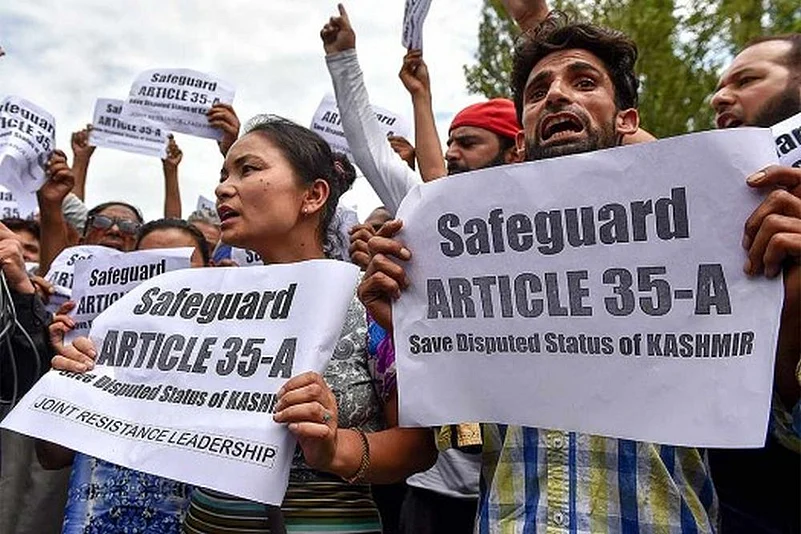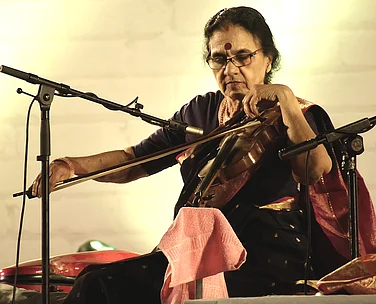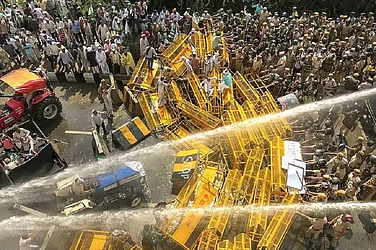The Supreme Court has adjourned hearing of the petitions challenging the validity of Article 35A on Monday.
The matter is capturing national attention and is cause of much anxiety and frenzy in the politically sensitive state of Jammu and Kashmir.
The state has been witnessing protests and demonstartions in support of the Article.
Here's an explainer on the contentious matter:
Article 35-A deals with empowering the Jammu and Kashmir Constitution to define “permanent residents” of the state.
It also empowers the Jammu and Kashmir Legislature to confer on permanent residents or state subjects special rights and privileges in public sector jobs, acquisition of property in the state, scholarships and other public aid and welfare.
It sought to replace and replicate a state subject law from the Dogra times, which Maharaja Hari Singh had promulgated In 1927 after a campaign from the influential Kashmiri Pandits who were apprehensive of hiring of Punjabis in civil service and administration.
It was added through Constitution (Application to Jammu and Kashmir) Order, 1954 issued by the President of India (Rajendra Prasad) on aid and advice of Jawaharlal Nehru cabinet.
The order followed the 1952 Delhi Agreement between Nehru and the then Prime Minister of J&K Sheikh Abdullah, which extended Indian citizenship to the ‘State subjects’ of J&K.
The J&K constitution, adopted on November 17, 1956, defines a permanent resident as a person who was born or settled in the state before May 14, 1954, or who has been a resident of the state for ten years and has lawfully acquired immovable property in the state.
What is the matter before Supreme Court?
Four petitions, three clubbed with the main one filed by an NGO, have challenged the legality of the law on the grounds that it was implemented on the President’s orders in 1954 without being presented before the Parliament of India. The provision appears as an “appendix” in the Constitution and not an amendment under the Constitution (Application to Jammu and Kashmir) Order-1954.
The first petition filed by NGO We The Citizens, linked to RSS, said Article 35 A is against the “very spirit of oneness of India” as it creates a “class within a class of Indian citizens”. It contended that “Restricting citizens from other States from getting employment or buying property within Jammu and Kashmir is a violation of fundamental rights under Articles 14, 19 and 21 of the Constitution.”
Another petition filed by a native of the J&K state, Charu Wali Khanna, has challenged Article 35A for protecting certain provisions of the Jammu and Kashmir Constitution, which restricts the basic right to property of a native woman who marries a man not holding a permanent resident certificate.
Why are Kashmiris protesting against its challenge?
The article is seen in the state a primary bridge between the Union and the state and its challenge in the apex court is viewed as an attempt to impinge upon the special rights enjoyed by the J&K people.
Ironically, the cause has garnered a united stand from both separatist and mainstream political organisations in the state.
While the separatists have called for a two day shutdown, parties like JKNC and PDP have held demonstrations in the state against any attempt to alter the articles significance.
Additionaly, trade union bodies, civil society groups and professional bodies in the state have come out in support of the Article.
As the Supreme Court starts to hear the matter in Delhi, people in Kashmir will be closely tracking the developments.


























